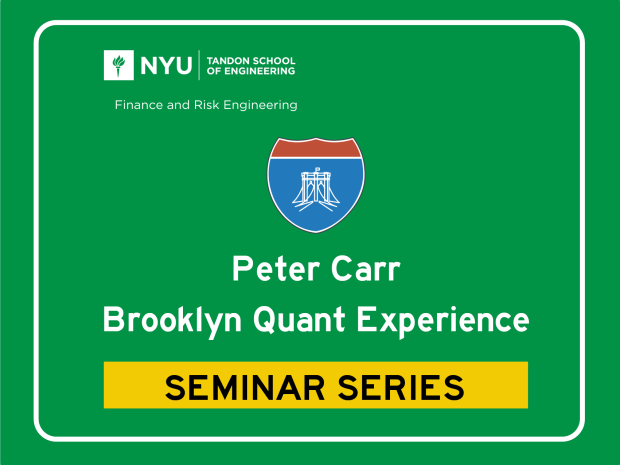Peter Carr Brooklyn Quant Experience (BQE) Lecture Series: Jussi Keppo & Joshua Reed

Jussi Keppo

Title
The Wisdom of Strategically Diverse Crowds
Abstract
Past literature has largely focused on the role of information diversity in the wisdom of the crowd. In this article, we investigate the effects of a new type of heterogeneity called strategic diversity. Specifically, the agents receive public and private information and have varying external motivations, ranging from conformity to contrarianism. We find that the agents’ strategic tendencies become more pronounced as the average level of conformity in the population rises, i.e., conformists (contrarians) shift closer to (further from) the shared public information. Both a typical agent’s and the group’s consensus become less accurate as the level of strategic diversity increases. Consequently, strategic diversity does not yield the same benefits in forecasting as information diversity. If strategic diversity cannot be avoided, then a mildly contrarian crowd leads to the best forecasting performance. To illustrate the distinct implication of strategic diversity on aggregating agents’ predictions, we study a new weighted-by-deviation scheme that assigns greater weight to contrarian viewpoints. Under mild conditions, we show that this aggregator improves accuracy over the corresponding equally weighted average if the crowd is large. Using simulated data, we demonstrate that it can perform well even if the crowd is small.
Bio
Professor Jussi Keppo teaches risk management and analytics courses, and directs analytics executive education programs at NUS Business School. He is also the Head of the Department of Analytics & Operations at NUS Business School and Research Director of the Institute of Operations Research and Analytics at NUS. Previously, he taught at the University of Michigan.
He has several publications in the top-tier journals such as Journal of Economic Theory, Review of Economic Studies, Management Science, Operations Research, and Journal of Business on topics such as investment analysis, banking regulation, learning, and strategic incentives. His research has been featured also in numerous business and popular publications, including the Wall Street Journal and Fortune.
Professor Keppo’s research has been supported by several Asian, European, and US agencies such as the National Science Foundation. He serves on the editorial boards of Management Science, Operations Research, and Journal of Risk. He has consulted several startups, Fortune 100 companies, and financial institutions.
Joshua Reed
 Title
Title
Modeling a Two-sided Limit Order Book in the High Frequency Regime
Abstract
We consider a limit order book which is modeled as a pair of coupled measure-valued stochastic processes representing the bid and ask sides of the order book. Limit and market orders arrive to both sides of the book according to independent Poisson processes and the distribution of the prices at which limit buy and sell orders are placed depends on the best bid and ask at the time of their arrival. We study the asymptotic behavior of this model in a high frequency regime where the arrival rate of incoming orders is large and limit buy and ask orders are placed in close vicinity to the current best prices. Our first main result provides a pair of coupled measure-valued stochastic differential equations as the formal limit of the buy and ask sides of the properly scaled order book in the high frequency regime. We then proceed to study the solution to this SDE in varying parameter regimes of the pre-limit model.
Bio
Josh Reed is an Associate Professor in the Operations group at NYU Stern. His research is focused on problems in applied probability and more specifically, queueing theory and revenue management. He has published in well known applied probability and operation research journals such as the Annals of Applied Probability and Operations Research. He was also the recipient of the George Nicholson prize awarded by INFORMS and the Erlang Prize given by the Applied Probability Society.

